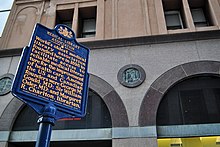The American Library Association (ALA) is a nonprofit organization based in the United States that promotes libraries and library education internationally. It is the oldest and largest library association in the world.
The Chartered Institute of Library and Information Professionals is a professional body for librarians, information specialists and knowledge managers in the United Kingdom.
The Special Libraries Association (SLA) is an international professional association for library and information professionals working in business, government, law, finance, non-profit, and academic organizations and institutions.

A health or medical library is designed to assist physicians, health professionals, students, patients, consumers, medical researchers, and information specialists in finding health and scientific information to improve, update, assess, or evaluate health care. Medical libraries are typically found in hospitals, medical schools, private industry, and in medical or health associations. A typical health or medical library has access to MEDLINE, a range of electronic resources, print and digital journal collections, and print reference books. The influence of open access (OA) and free searching via Google and PubMed has a major impact on the way medical libraries operate.

The Massachusetts Library Association (MLA) is the Massachusetts, United States professional library association that "advocates for libraries, librarians, and library staff, defends intellectual freedom, and provides a forum for leadership, communication, professional development, and networking to keep libraries vital." MLA publishes standards for library services to Massachusetts children and young adults. MLA sponsors an annual conference, as well as continuing education programs and organizational reports of interest. The current President of MLA is Esme Green, Director of the Goodnow Library in Sudbury.
The Music Library Association (MLA) of the United States is the main professional organization for music libraries and librarians. It also serves corporations, institutions, students, composers, scholars and others whose work and interests lie in the music librarianship field. National meetings occur annually.
The Master of Library and Information Science (MLIS), also referred to as the Master of Library and Information Studies, is the master's degree that is required for most professional librarian positions in the United States. The MLIS is a relatively recent degree; an older and still common degree designation for librarians to acquire is the Master of Library Science (MLS), or Master of Science in Library Science (MSLS) degree. According to the American Library Association (ALA), "The master’s degree in library and information studies is frequently referred to as the MLS; however, ALA-accredited degrees have various names such as Master of Information Studies, Master of Arts, Master of Librarianship, Master of Library and Information Studies, or Master of Science. The degree name is determined by the program. The [ALA] Committee for Accreditation evaluates programs based on their adherence to the Standards for Accreditation of Master's Programs in Library and Information Studies, not based on the name of the degree."

Elonnie J. Josey was an African-American activist and librarian. Josey was the first chair of the Black Caucus of the American Library Association, having been instrumental in its formation in 1970; served as president of the American Library Association from 1984 to 1985; and was the author of over 400 books and other publications.
The American Medical Informatics Association (AMIA), is an American non-profit organization dedicated to the development and application of biomedical and health informatics in the support of patient care, teaching, research, and health care administration.
The Southeastern Library Association (SELA) is an organization that collaborates with different library associations within the Southeastern United States, including Alabama, Arkansas, Florida, Georgia, Kentucky, Louisiana, Mississippi, North Carolina, South Carolina, Tennessee, Virginia, and West Virginia.
The Minnesota Library Association (MLA) is a professional association and state chapter of the American Library Association, headquartered in Minneapolis, Minnesota.
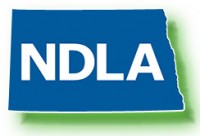
The North Dakota Library Association (NDLA) is a professional association for librarians, library staff, and library supporters that represent school, public, academic, and special libraries located in North Dakota, United States. "The purpose of this organization is to exercise professional leadership and to promote library services and librarianship." The North Dakota Library Association was formed on January 18, 1906. The association has humble beginnings – at the 1909 conference, there was only 18 members. There are currently over 300 NDLA members.
Credentialing is the process of establishing the qualifications of licensed medical professionals and assessing their background and legitimacy.
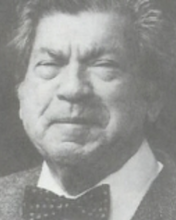
David A. Kronick was a librarian who researched the history of scholarly communication. He was once called a "bibliographic archaeologist". He was a Fellow of the Medical Library Association and the American Association for the Advancement of Science, and achieved the rank of Distinguished Member in the Academy of Health Information Professionals.

Janet Doe was a medical librarian notable for her work at the New York Academy of Medicine and her consultant work with the Army Medical Library.

Estelle Brodman (1914–2007) was an American medical librarian and medical historian. She held positions at Columbia University, the National Library of Medicine and the Washington University School of Medicine (WUSM). Brodman served terms as director of the Special Libraries Association, president of the Medical Library Association, and editor of the Bulletin of the Medical Library Association. Under Brodman's leadership, the library at WUSM became known as a leader in the use of computing machines to perform library functions.
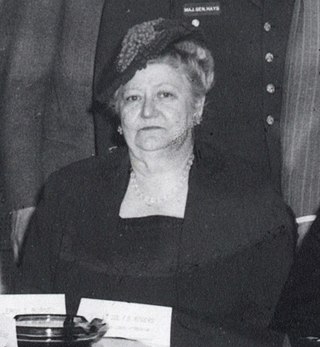
Mary Louise Marshall was Librarian and Professor of Medical Bibliography at Tulane University School of Medicine, and the longest-running president of the Medical Library Association (1941–46).
Gwendolyn Stiggins Cruzat is Professor Emerita of the University of Michigan School of Information and Library Studies. Her teaching and scholarship made significant contributions to medical librarianship. Cruzat was named one of the 100 most notable medical librarians by the Medical Library Association in 1998.
Lucretia W. McClure was an American medical librarian. She was most recently volunteering for the archives within the Edward G. Miner library, University of Rochester Medical Center. She previously was a director there, and after her retirement in 1993, she worked at Boston Medical Library from 1994 to 2011. Besides her service to those institutions, McClure served for decades within the Medical Library Association, including a stint as President (1990–91). She is the only person to have been interviewed twice for the MLA Oral History Project, first in 1998 and again in 2015.
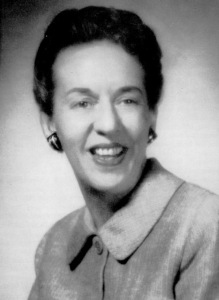
Mildred McMillan Jordan was an American medical librarian. She was the second director of the Woodruff Health Sciences Center Library of Emory University, at the time known as the A.W. Calhoun Medical Library. She developed the second ever academic course in medical librarianship and was Professor of Medical Bibliography in the Emory University School of Medicine. Her involvement in the Medical Library Association pushed the field of medical librarianship to become professionalized and credentialed.

